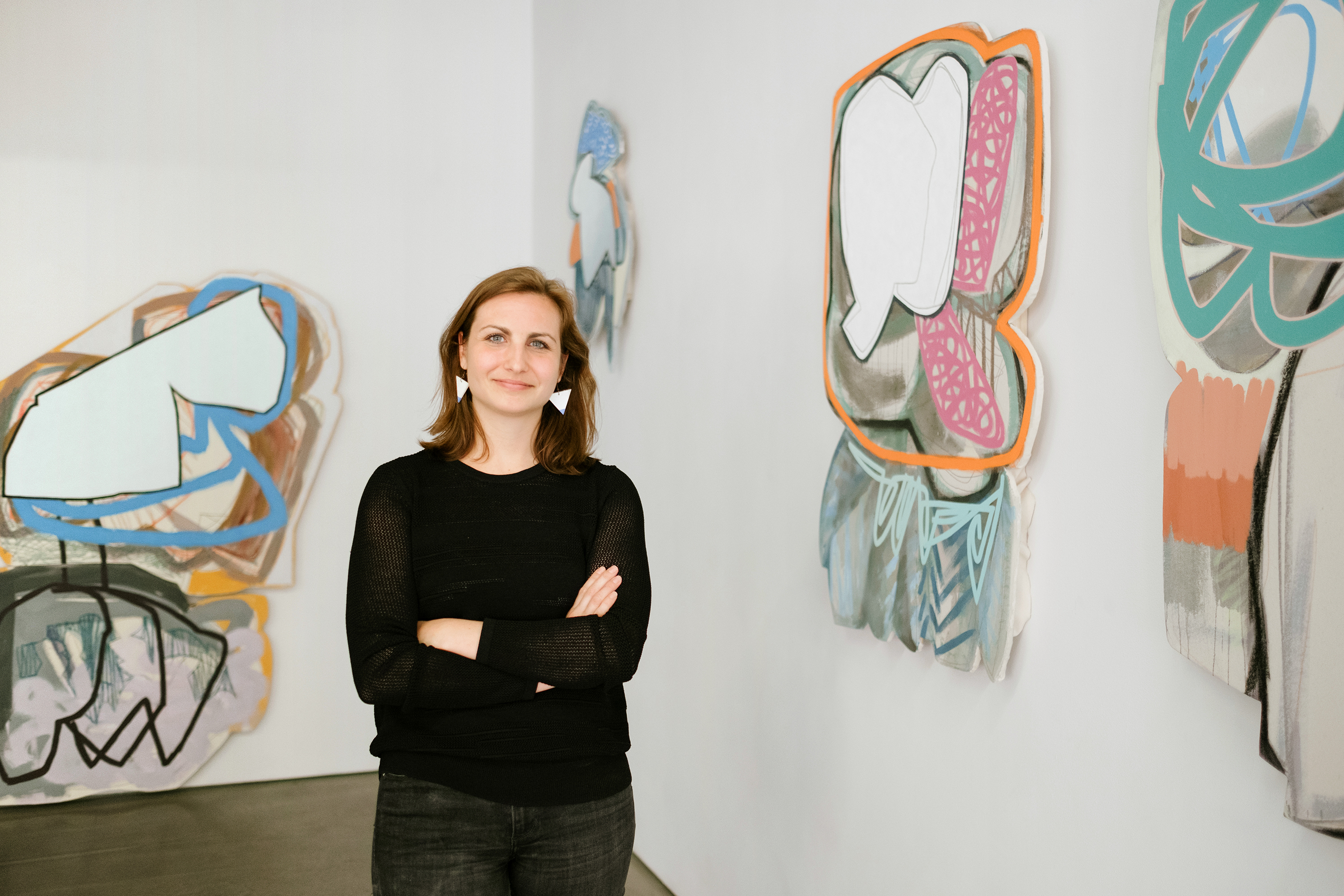Name: Justine Hill
Class Year: 2008
Title: Artist
Organization Name: Self-Employed
1. In one sentence, what does your job entail?
As an artist, most of my job is spent working in my studio making new artwork for both exhibition and sale.
2. What planned and unplanned events connected you to your industry and your first employer after Holy Cross? How did you learn/decide it was a good fit for you?
As with most artists I know, I’ve had many non-art-related jobs. But I am grateful for two jobs that helped me connect better to the arts community in New York.
My first was an internship for the artist Mickalene Thomas. At the time she was working towards a large show at the Brooklyn Museum and needed extra help. I only worked there for a few months, but it gave me a huge insight to different ways artists can function and run their studio practices.
The second job was at Denny Gallery (now Denny Dimin Gallery). It was one of those great serendipitous moments at an exhibition opening (which I went to constantly when I first moved to New York, and still do for that matter) when the owner was saying she was looking to hire help. I interviewed that week and worked there for four years. I learned invaluable information about the inside workings of a gallery and the commercial art world from that job. I no longer work there but they now represent me as an artist so it’s still a growing relationship.
3. What were you involved in when you were on campus?
I probably wouldn’t be classified as a joiner while at Holy Cross. But I was involved in GESSO the student gallery in Hogan, I was a Publicity Chair for CAB (Campus Activities Board), and my last year I worked at the Cantor Art Gallery.
4. What was your major and how did it affect your career decisions?
I was declared a studio art major and I believe also a math major when I first arrived at Holy Cross. However, I quickly only want to take art classes and tried to find ways to take as many as I could. I had no idea what career I was going to have.
5. What are one or two skills that you developed at Holy Cross that you use in your work?
I feel in order to answer this I should explain more of what my job entitles, because I certainly did not know this when I got to Holy Cross.
It’s certainly true that most of my time is working on new artwork and projects in my studio. This involves sketching, planning, building panels and painting. I spend a lot of time researching and looking at art in galleries, museums, and at other artists’ studios so I always know what is happening around me and what has happened before me. I also spend more time than I realize on general correspondence and logistics such as shipping, packing and installing artwork. And as with all professions, networking is very important and something I am constantly trying to be better at.
Where I am still very grateful to Holy Cross, is when I am in my studio. Many of the small decisions I constantly make are rooted in what I was taught at school. Decisions such as material choices and being conscious of scale. But also the advice that the first idea is not usually the best and one sketch is helpful but twenty would be much more helpful.
I received great practical advice in my studio classes but perhaps the most important skill they encouraged was to be extremely self-critical. This constantly helps me as an artist and as an entrepreneur.
6. What advice do you have for students on campus today?
Make the most of your time on campus. And what I mean by that is gather as much information and advice from your professors as you can because it’s very hard to find that type of an honest and open mentor relationship after school.
But also, be honest with yourself and realistic about the type of life you hope to lead. I love being an artist and wouldn’t change it for the world, but I may never be financially stable and might live in a studio apartment for the rest of my life!


